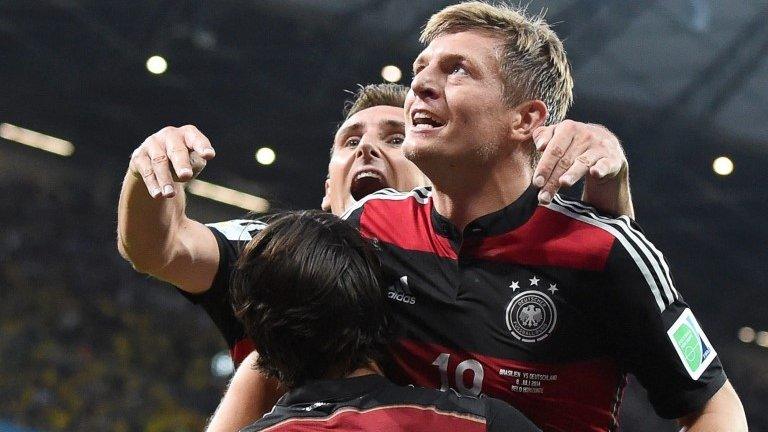Netherlands goes from total football to total psychology
- Published
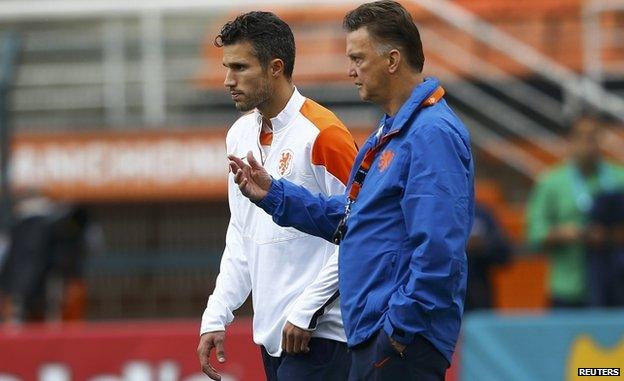
Louis Van Gaal (R) is credited with tactical masterstrokes that have helped the Netherlands reach the last four
The Dutch team flew to Brazil aware that public expectations at home were at an all-time low. Now they face Argentina in the semi-final with the prospect of a mouth-watering final against a rampant Germany if they win.
Going into the competition, just 5% of this football-loving nation thought their largely youthful side had the potential to reach the finals.
But rather than allowing this lack of faith to dampen morale, coach Louis van Gaal used it to galvanise his squad.
"He said, 'Okay everybody thinks we're not going to go far'," says Dutch TV football commentator Jeroen Elshoff.
"He made a strong point of that. He gave responsibility to the stars and told them, 'We can go far', and made them believe it. Two wins away and you're world champions. It's still unbelievable actually."
This young team, which features relative unknowns Memphis Depay, Jeremain Lens and Leroy Fer, is treading on old ghosts. In Argentina, they face a country that beat the golden generation of Dutch footballers in the 1978 final. The prize will be a chance to avenge defeat in the 1974 final against what was then West Germany.
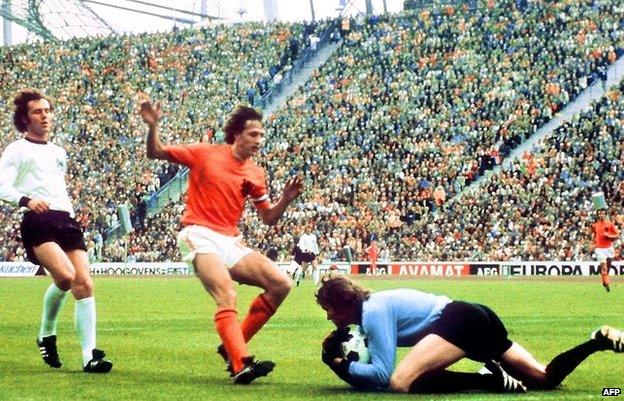
Johan Cruyff's Dutch team were runners up in the 1974 World Cup but were praised for their brand of football
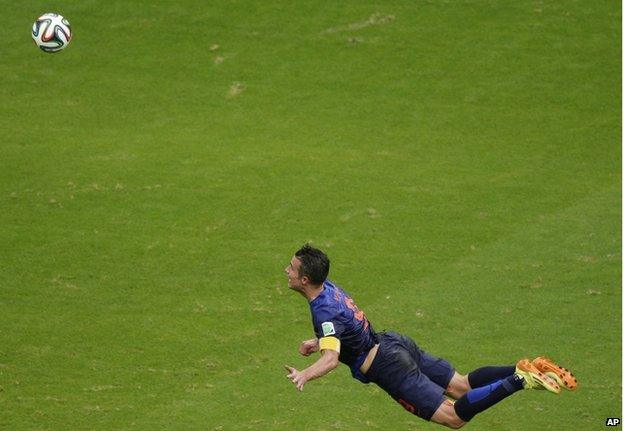
Robin Van Persie's wonder-goal helped defeat 2010 champions Spain on 13 June
In the 1970s, the Dutch were renowned the world over for their eye-catching "total football". Its chief proponent, Johan Cruyff, is no admirer of the current coach's clinical approach. Cruyff has been involved in a decade-long feud with the revolutionary Van Gaal, even refusing to work with him at Ajax.
An astute tactician who abandoned the Netherlands' traditional commitment to total football, Louis Van Gaal has instead espoused something closer to "total" psychology.
Former Dutch international Rob Witschge, who played alongside Cruyff, says Van Gaal is looking to win at all costs: "Normally we want to play good football and we want to win.
"Now we only want to win. That's the main difference between what we did in the past and what he's doing now. It doesn't matter how, he wants to win."
Van Gaal is a disciplinarian who has encouraged the players to abandon their egos, teaching them to sacrifice themselves for the team.
"I've never seen them more united," says Dutch cameraman Harold Morris, "Their arms around each other before the game, the way they support each other, it never used to be like this."
From their dramatic 5-1 victory over champions Spain at the start of the tournament, to the thrilling comeback in the dying moments of the Mexico game, the Dutch have repeatedly demonstrated a united determination that has seen them through to the semi-finals.
Although initially it was the technical brilliance of Arjen Robben and Robin Van Persie that swept their rivals away, Van Gaal's psychological manoeuvres have been credited with outsmarting Costa Rica in the quarter-final penalty shootout.
Substituting first-choice goalkeeper Jasper Cillessen in the dying moments of extra time with towering Tim Krul was seen as a master-stroke.
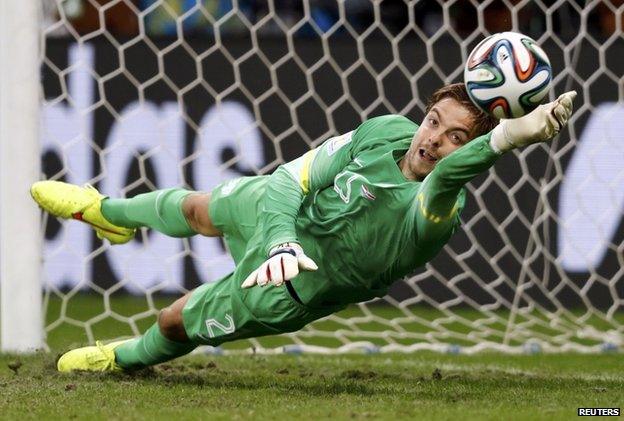
A Krul twist of fate: Dutch substitute goalkeeper Tim Krul saves Costa Rica's final penalty
For the external observer the last-minute swap appeared to be a high-risk strategy, but not for those familiar with Van Gaal's philosophy,
Sports psychologist Rico Schuijers, who works with the Netherlands' elite athletes, says it made perfect sense.
"I think the combination of surprise and being at your best is the key," he says. "The psychology is that if you feel confident and well-motivated, then you're able to focus. And I think that's Van Gaal's achievement: to focus on it game by game, know how to adapt and not dream about the title."
Louis van Gaal has sprinkled the relatively young squad with stardust.
Some are tipping him as coach of the tournament while Manchester United fans are awaiting his imminent arrival with excitement.
The man they call the "Iron Tulip" breathed confidence when I caught up with him at Holland's World Cup training ground in Hoenderloo just before they left for Brazil. all those weeks ago.
Asking him if he could blossom at Old Trafford next season, his response was: "You've seen me training today, I am always shining."
And his confidence appears to course through the veins of his team.
- Attribution
- Published9 July 2014
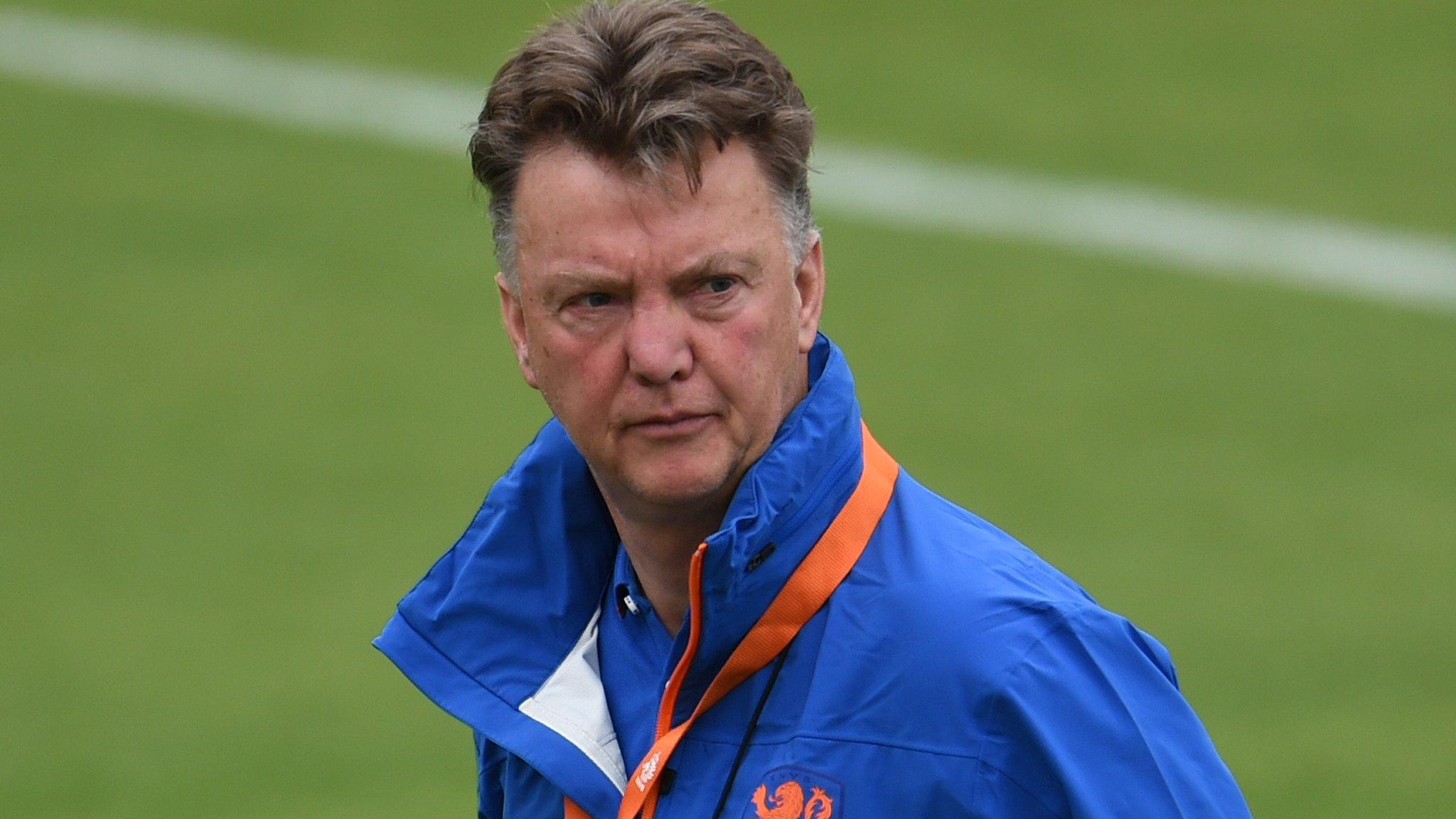
- Attribution
- Published9 July 2014
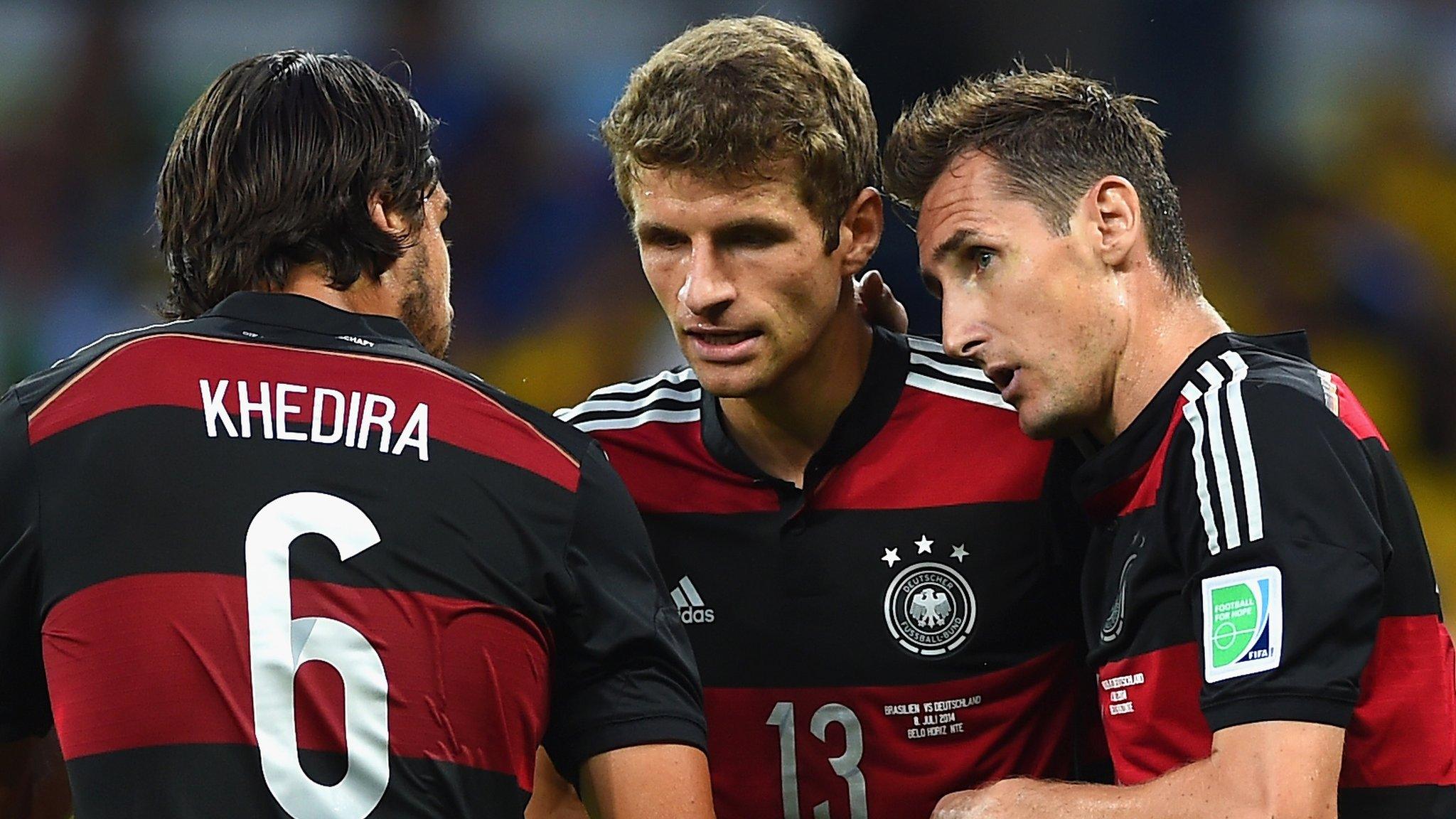
- Attribution
- Published8 July 2014
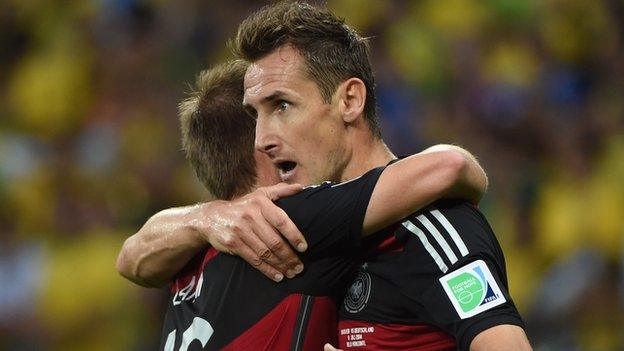
- Attribution
- Published9 July 2014
